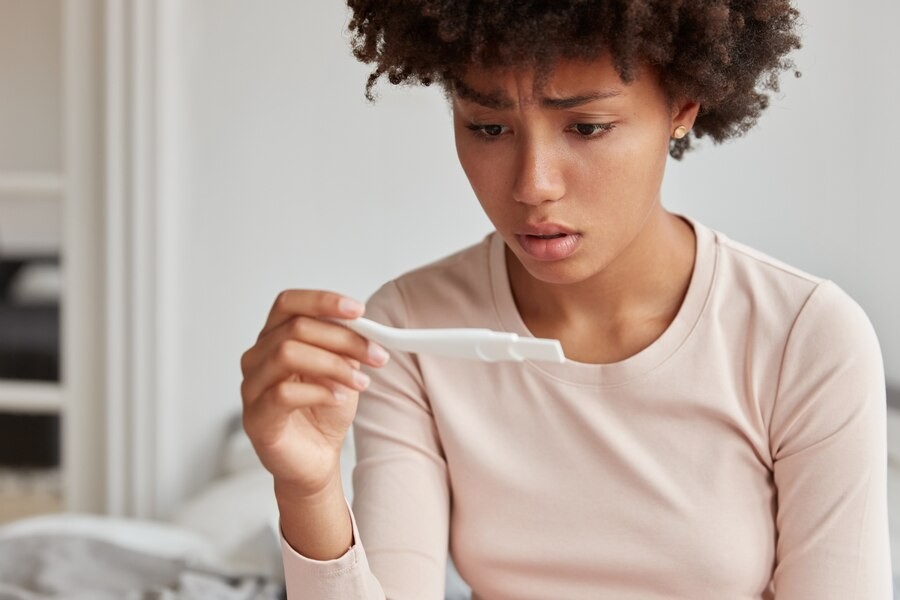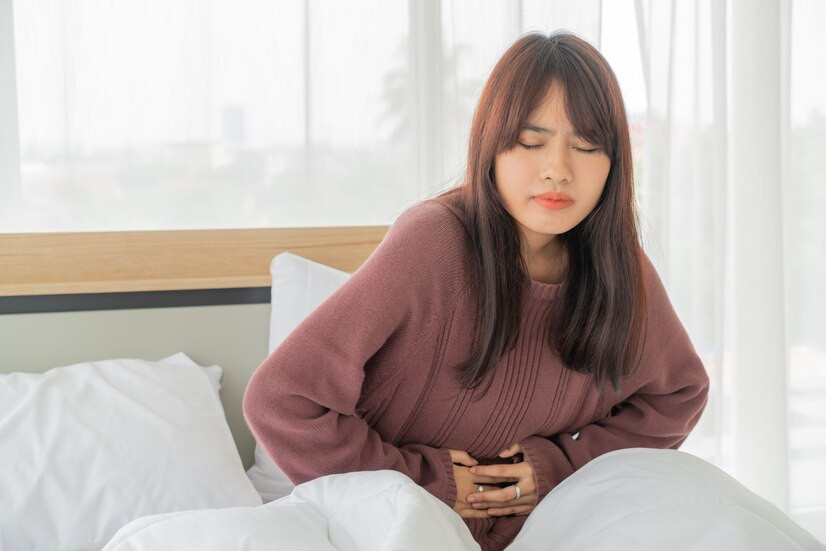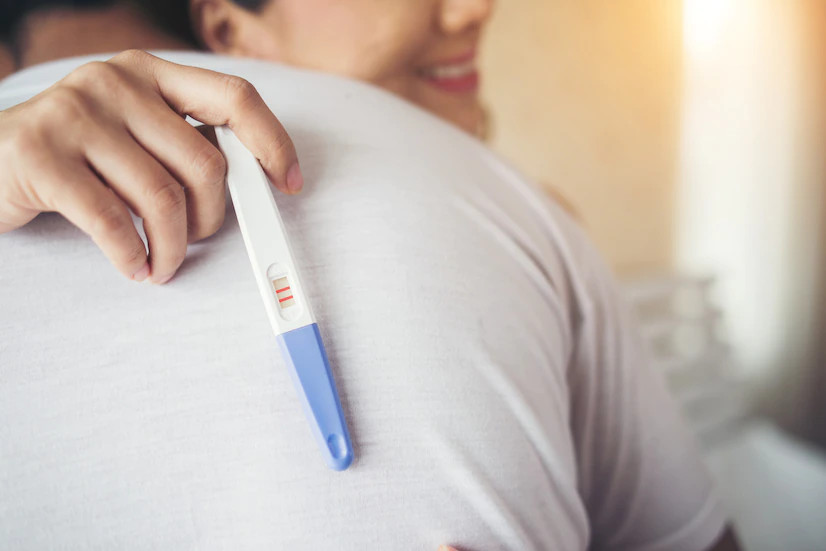Endometriosis umum terjadi pada wanita usia subur, di antara usia 15-49 tahun. Penyakit ini adalah kondisi di mana jaringan yang biasanya tumbuh di dalam rahim (endometrium) mulai tumbuh di luar rahim.
Pertumbuhan jaringan di luar rahim ini dapat menyebabkan berbagai gejala seperti nyeri panggul, nyeri haid yang parah, nyeri saat berhubungan seksual, perdarahan menstruasi yang berat atau tidak teratur serta masalah kesuburan. Selain itu, endometriosis juga dapat menyebabkan gangguan pencernaan seperti diare, sembelit, atau nyeri perut.
Faktor yang Meningkatkan Risiko Endometriosis pada Wanita
Penyebab endometriosis belum diketahui pasti. Namun, ada beberapa faktor yang dapat meningkatkan risiko endometriosis pada wanita, di antaranya:
Riwayat endometriosis keluarga
Penelitian telah menunjukkan bahwa orang yang memiliki anggota keluarga dengan riwayat endometriosis memiliki risiko lebih tinggi mengembangkan endometriosis. Meskipun demikian, faktor genetik bukanlah faktor utama dari kondisi ini. Hanya saja apabila di dalam keluarga ada yang memiliki kondisi endometriosis, maka sebaiknya lebih waspada akan gejala-gejala yang mungkin muncul dan dirasakan.
Baca Juga: Ketahui Gejala Endometriosis Selain Haid Berlebihan
Menstruasi dini
Sebagian besar anak perempuan mengalami menstruasi pertama di usia 12 tahun, namun ada juga yang mulai mengalaminya di usia 8 tahun. Menstruasi sebelum usia 11 tahun dikaitkan dengan peningkatan risiko endometriosis karena beberapa alasan:
- Paparan lebih lama terhadap estrogen memengaruhi pertumbuhan jaringan endometrium di luar rahim
- Menstruasi dini cenderung memiliki siklus menstruasi lebih panjang
- Menstruasi dini sering kali terkait dengan kematangan reproduksi yang lebih dini, termasuk ovulasi lebih awal dan siklus menstruasi yang lebih teratur
Panjang siklus menstruasi
Wanita dengan siklus menstruasi yang lebih panjang memiliki risiko lebih tinggi mengembangkan endometriosis. Hal ini mungkin terkait dengan paparan lebih lama terhadap estrogen dan lebih banyaknya siklus ovulasi selama masa reproduksi.
Baca Juga: Tips Mudah Hamil Bagi Pengidap Endometriosis
Kelainan pada rahim atau saluran tuba
Kelainan pada rahim atau saluran tuba tidak secara langsung meningkatkan risiko endometriosis. Namun, kelainan struktural pada rahim maupun saluran tuba dapat menyebabkan terganggunya perjalanan sperma dan sel telur yang dapat memicu penumpukan darah. Darah yang terperangkap ini dapat menyebabkan peradangan dan memperburuk endometriosis.
Dalam beberapa kasus, endometriosis mungkin saja hilang dengan sendirinya tanpa pengobatan. Namun, pengobatan efektif seperti terapi hormonal atau prosedur bedah perlu dilakukan untuk membantu mengendalikan dan mengurangi endometriosis. Jadi jika selama ini Anda sering merasakan nyeri menstruasi, perdarahan menstruasi berat, kesulitan hamil, keguguran berulang, nyeri saat berhubungan seksual atau nyeri panggul, maka sebaiknya memeriksakan diri ke dokter untuk memastikan penyebabnya. Anda juga bisa memanfaatkan layanan konsultasi kesehatan apabila memiliki pertanyaan lain seputar endometriosis melalui aplikasi Ai Care yang bisa diunduh di App Store atau Play Store.
Mau tahu informasi seputar penyakit lainnya? Cek di sini, ya!
- dr. Monica Salim
Cleveland Clinic (2022). Endometriosis. Available from: https://my.clevelandclinic.org/health/diseases/10857-endometriosis
Mayo Clinic (2023). Endometriosis. Available from: https://www.mayoclinic.org/diseases-conditions/endometriosis/symptoms-causes/syc-20354656
Pregnancy, Birth, and Baby (2022). How endometriosis affects pregnancy. Available from: https://www.pregnancybirthbaby.org.au/how-endometriosis-affects-pregnancy
Zawn Villines (2023). Is endometriosis hereditary? What to know. Available from: https://www.medicalnewstoday.com/articles/is-endometriosis-hereditary
Mei Yin Lu et al. (2022). The risk of endometriosis by early menarche has recently increased, according to a meta-analysis of literature published from 2000 to 2020. Available from: https://pubmed.ncbi.nlm.nih.gov/35377041/
Hae Sang Lee, MD, PhD (2021). Why should we be concerned about early menarche?. Available from: https://www.ncbi.nlm.nih.gov/pmc/articles/PMC7806408/
NHS UK (2023). Starting your period. Available from: https://www.nhs.uk/conditions/periods/starting-periods/
Carly Werner, RD (2022). Your FAQs, Answered: How Does Endometriosis Affect Periods?. Available from: https://www.healthline.com/health/endometriosis/period-faqs
Jenna Fletcher (2023). Causes and treatments for a period that won't stop. Available from: https://www.medicalnewstoday.com/articles/326094
Anastasia Prodoromidou et al. (2022). Tubal Endometriosis: From Bench to Bedside, A Scoping Review. Available from: https://www.ncbi.nlm.nih.gov/pmc/articles/PMC8955934/











